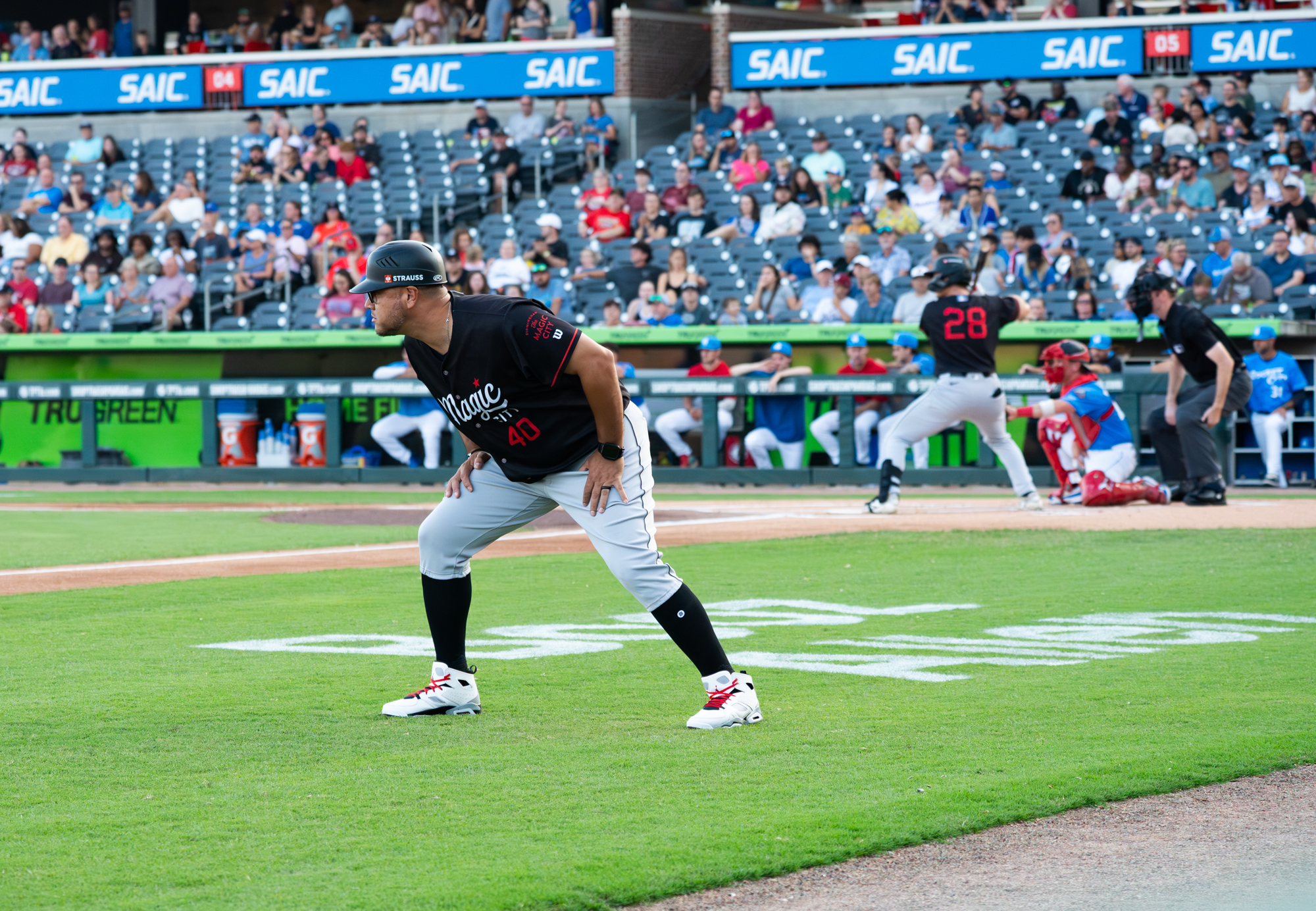A cited example of the impact of Brian Mahler, the former U.S. Navy SEAL turned White Sox director of leadership, culture and continuing education, are the anti-bias measures the franchise put into their recent managerial hiring process. Applicants had to submit completed written questionnaires full of open-ended queries on their baseball philosophy before they could charm Chris Getz & Co. in an interview.
As can often be the case with the updates the White Sox have made to their process in recent years, the end result is something that looks like what other organizations are doing. So in trying to recall what he might have written that distinguished him early in the Sox managerial search, Will Venable spun his wheels for a moment, recalling a litany of questions he answered from different teams before landing on one that he felt was meaningful.
"Do you believe games are won or lost?" Venable recalls as a question. "I believe that they're won, and I think I'm in the minority on that.
"My whole thing with that answer was yes, mistakes are made, and teams capitalize on those mistakes and that matters. But guys work so hard to execute plays, there's so many things that happen that guys do right. Just because they're in the big leagues and you're supposed to make those plays, they're kind of forgotten about. But those are winning plays, and if you make more of those plays, you have a better chance of winning. To me, the ideas that games are lost disrespects the winning effort."
This affirmative view of a sport so often associated with failure bleeds into every element of the 2025 White Sox strategy, or at the very least blends into what the front office already wanted to stress. The enthusiasm dedicated to secondary leads, pre-pitch defensive setups, or even back-picks is representative of an under-talented unit trying to narrow the gap against the rest of the league with marginal victories. But it's also meant to imbue every member of the roster with the power to positively affect the game, rather than simply avoid mistakes.
Teams with superior talent and resources can dodge mistakes and wait for nature to take its course. The White Sox will have to go out and get any wins they enjoy this season, and in an ideal world, it's an edge they carry through to a year where it might make a difference.
"It's spot-on to what we preached in spring training, doing all the little things right to squeak out close wins," said Josh Rojas. "I met with Will in spring training about that philosophy. He said exactly what I was thinking: You can't play not to lose. You have to play to win. You have to go out there and steal outs."
By all relevant metrics, except the one Venable says merits the most attention -- wins and losses -- the White Sox are meaningfully better, but have not transformed into a strong defensive and baserunning team over the season's first two months. A handful of games have been lost with the sort of galling mistakes that wouldn't have looked out of place in last year's 121-loss season.
Still, Venable strides out to meet the media postgame with a demeanor that is almost alien in its consistency: a polite smile and an amiable greeting of "Hey guys."
"It's relentless positivity from Will, and I've really come to appreciate that," said bench coach Walker McKinven. "He's fun to be around and he's just kind to everyone."
"I had the best example of that with Joe Maddon," said Venable, who was Maddon's first base coach with the Cubs in 2018 and 2019. "You could not tell after a game if we won by 10 runs, or lost by 10 runs, or what kind of game it was. I just remember being part of that staff and having a tough time, and it was a tough game. Maybe I messed something up? And then I look at him, and I'm like, Oh he's cool. We're going to be all right."
In the throes of a five-game losing streak that includes being outclassed by the Cubs in front of the entire city, the White Sox level of play has, by Venable's description, numerous elements "that we're not happy about." For why that hasn't discouraged him, altered his approach or made him wonder what he's gotten himself into, Venable lauds how supportive the organization has been as he acclimates to the role and counters that it's endemic to baseball that "bad things happen and you can't let it throw off your whole demeanor."
But certainly in this current state of White Sox development, and probably for the duration of his tenure as manager, Venable views the central focus of his job as creating a positive work environment and making players look forward to coming to the ballpark. There is critical feedback to deliver. There are lineups and in-game moves to second-guess, and then Venable throws an extra question for himself: "Did I meet every one of these moments with positivity? I want to be 100 percent on those."
"My guess is [White Sox fans] have heard a lot of the same things that I'm coming in and talking about, with 'We're going to focus on the things we know contribute to wins,'" Venable said. "They've heard that. It's all the same stuff, and then the record is similar. I understand that. But for me it's about what are the things everyday that we're committing to, doubling down on, and I feel really good about our process on those things. While I understand the fan base and the sentiment in the past, I'm just trying to have a good day today, and that's the focus."
For a new manager trying to install an empathetic clubhouse culture, Venable is a notably standalone import. McKinven and assistant hitting coach Joel McKeithan are the only external additions to a staff that was largely composed before the new manager's arrival, and neither have a prior history with Venable. Not that the messaging to a White Sox pitching staff going to war with arguably the worst stuff in baseball, or an underpowered lineup, runs counter to Venable's affirming approach.
"Joel and Marcus [Thames] have done a really good job of just preaching process and controlling the things that are important to us," said Michael A. Taylor. "Our hitters meetings have been very productive, and there's a lot of guys speaking up. I think we come together with a collective plan, and our focus more on executing that than really the result, because you can't always control that. Obviously, you can go up there with a great plan and line out and go 0-for-4."
"The No. 1 thing coming over was trust in Getzy and his vision and plan, and he talked about the staff and how a lot of these guys were hired just the year before," Venable said. "I've been so pleased with our staff and the work they've done. We are aligned on a lot of things, and the things we're not aligned on, we communicate extremely well about. We work through our problems and I think we're all pulling our weight in creating an environment and structure to support our players."
While allowing that it's hard to understand the job of an MLB manager until you do it, Venable claims the road hasn't been any more difficult than he expected, which, taken at face value, suggests he was prepared for harsh times. For someone trying to establish a culture, a positive environment, it would surely be a challenge that the environment keeps shifting.
The White Sox have already used 42 different players this year, and are expected to get to 43 by the end of Tuesday. That figure should only balloon come July, when the separation between young players who have a future in the organization and veteran rentals that the front office intends to shop will become even more stark. As other Sox staffers have noted over the last two years, the losing is one thing, but the constant shuffle of short-term patches can further strip it of meaning. It's understood that the White Sox are building toward something far off, but many more than Luis Robert Jr. know they won't be around to see it.
Here again, Venable is relentless. The last two-plus years of White Sox baseball is a misery that's hard to shake. But it's irrelevant if you're only looking forward.
"We're all White Sox right now, and that's what's important," Venable said. "Today is today, and we're going to do everything we can to win the game today."






